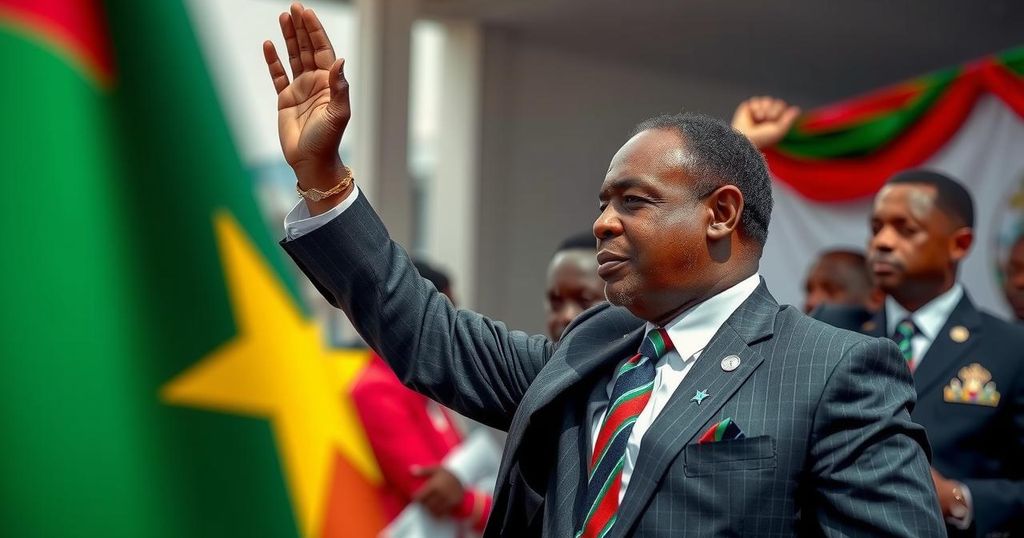Daniel Chapo Declared Winner of Disputed Presidential Election in Mozambique
Daniel Chapo was declared the winner of Mozambique’s presidential election on October 9, amid allegations of electoral fraud and violence. Receiving about 71 percent of the vote, he succeeds Filipe Nyusi after a contested election process. The unrest following the announcement highlights the tensions in a nation struggling with inequality and an insurgency.
Daniel Chapo of the ruling Frelimo party has been announced as the winner of Mozambique’s presidential election held on October 9, despite significant controversies surrounding the electoral process. Mr. Chapo received approximately 71 percent of the votes, succeeding Filipe Nyusi, who has reached the end of his term limits after serving two five-year terms. The electoral commission’s declaration comes amid escalating tensions in Mozambique, a country that has experienced a prolonged insurgency by Islamist militants in the Cabo Delgado region. This conflict has intensified disparities between the affluent elite who prosper from Mozambique’s natural resources—such as natural gas and precious stones—and the impoverished populace grappling with high unemployment rates. The aftermath of the election witnessed violent protests in the capital, Maputo, where demonstrators clashed with law enforcement amidst allegations of electoral fraud. Protesters accused Frelimo of rigging the election and implicated the party in the fatal shootings of two supporters aligned with Mr. Chapo’s principal opponent, claims which Frelimo has vehemently denied, asserting that they are confident the election results reflect the true will of the electorate. This recent electoral cycle poses significant challenges to Frelimo’s enduring grip on power, emphasizing the historical struggles the party has faced since Mozambican independence from Portugal in 1975, including a civil war that followed closely after.
The context of the presidential election in Mozambique is shaped by the country’s complex socio-political landscape. The Frelimo party has maintained a firm grip on power since independence, navigating through various crises, including an ongoing insurgency in Cabo Delgado that has displaced thousands and exacerbated inequality. Mozambique is rich in natural resources, particularly natural gas and precious stones, but these resources have largely benefited a select few while the general populace continues to experience widespread poverty. The recent elections, therefore, could signify a turning point in an already polarized nation grappling with governance challenges and a push for increased political accountability amid rising discontent.
The election of Daniel Chapo as Mozambique’s president under disputed conditions marks a critical moment for the country. As Frelimo continues to face allegations of electoral misconduct and violence, the legitimacy of the election results remains a contentious issue. The brutality observed during the protests against the election reflects deeper societal issues regarding wealth disparity and governance that have persisted for decades. It remains to be seen how the new administration will address these pressing challenges while maintaining stability amidst an ongoing insurgency and widespread public dissatisfaction.
Original Source: www.nytimes.com




Post Comment